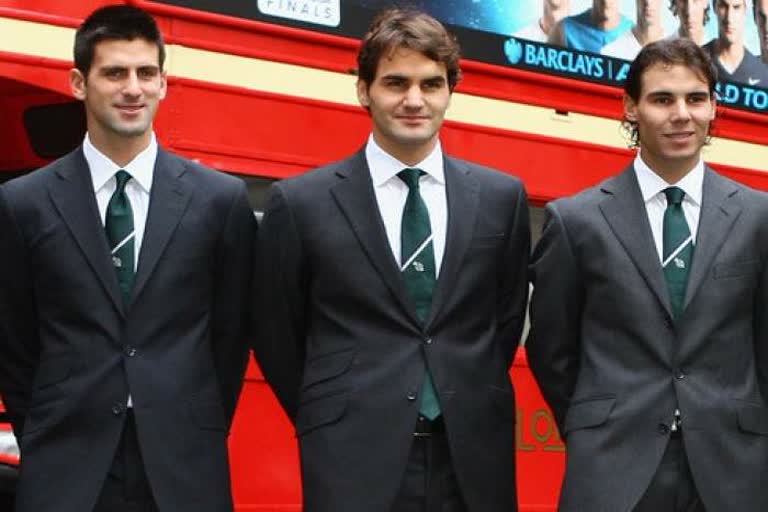Miami: The next generation of men's tennis remains a jumble of unrealized potential.
With Novak Djokovic, Rafael Nadal and Roger Federer skipping the Miami Open, the tournament was expected to bring the game's new faces into sharper focus. Instead, the outlook remains fuzzy as the clay season begins.
Sunday's match between No. 37-ranked Hubert Hurkacz and No. 31 Jannik Sinner was the first ATP Masters 1000 final since 2003 with two players ranked outside the top 30. Hurkacz became the lowest-ranked champion in the ATP's top-level series since 2005.
Also Read: Hubert Hurkacz wins Miami Open beating Jannik Sinner
Meanwhile, for players touted as future Grand Slam champions, Miami represented an opportunity missed. Daniil Medvedev, Stefanos Tsitsipas and Alexander Zverev failed to make it even to the semifinals.
With the Big Three absent, I think all the NextGen guys were trying their best to play their best game, to compete as hard as they can," Hurkacz said.
Hopefully, the spectators enjoyed it.
But what should fans make of it? Twenty-somethings have been trying to overtake the Big Three for years, and no front-runner for 2021 emerged in Miami.
Medvedev, seeded No. 1 at a Masters 1000 event for the first time, was upset in the fourth round by Roberto Bautista Agut. No. 2 Tsitsipas exited in the same round with a loss to Hurkacz.
I felt like it was my opportunity, Tsitsipas said.
There was more space for me to show something greater.
No. 3 Zverev flopped worst of all, double-faulting three times on breakpoint in a loss to No. 83-ranked Emil Ruusuvuori. No. 4 Andrey Rublev, a Russian who leads the tour with 20 wins this year, reached the semifinals before Hurkacz upset him.
This all came after Nadal and Federer withdrew before the tournament started due to injuries, while Djokovic decided to stay home in Serbia amid the pandemic.
For Hurkacz, 24, the title is by far the biggest of his career and the first for a Polish player in a Masters 1000 event. But he won't be among the favourites at the French Open.
In sum, no 20-something appears poised to wrest the mantle from the 30-somethings who have dominated the sport for so long. Dominic Thiem won his first major title at the U.S. Open in September, but he is just 5-4 this year and skipped Miami.
The next generation still has to show they can beat the Big Three, Sinner said. The next generation is not ready yet to win against them consistently. At some point there will be the moment; I don't know when. It can be two years or five years, I don't know. But the moment will come.
Perhaps Grand Slam greatness will skip a generation, and it will be someone now a teenager who supplants the Big Three. Sinner, a 19-year-old baseline basher from Italy, took a giant leap in Miami, just his third Masters 1000 event.
Also making a splash was unseeded 20-year-old American Sebastian Korda, who reached the quarterfinals before losing to Rublev. Korda, the son of former Australian Open champion Petr Korda, is widely considered the best hope to end an 18-year drought in major titles for U.S. men.
He sounds more patient than some fans.
Also Read: Switzerland pondering to dedicate National Day to Roger Federer
My parents are super big on baby steps, Korda said.
"You can play tennis for so long if you stay healthy for 15-plus years. Guys now are playing until 40; it's incredible. There are a lot of years ahead of me.
I'll always put my head down and keep working, and hopefully one day I could achieve something like what my dad achieved.
Korda and Sinner have considerable flair and star appeal, as do Medvedev, Tsitsipas, Zverev and Rublev.
The future of tennis looks great because the generation is changing, Rublev said.
The NextGen players are different. They look different compared with previous ones. I think they have charisma.
Charisma, yes, but not yet many trophies.



